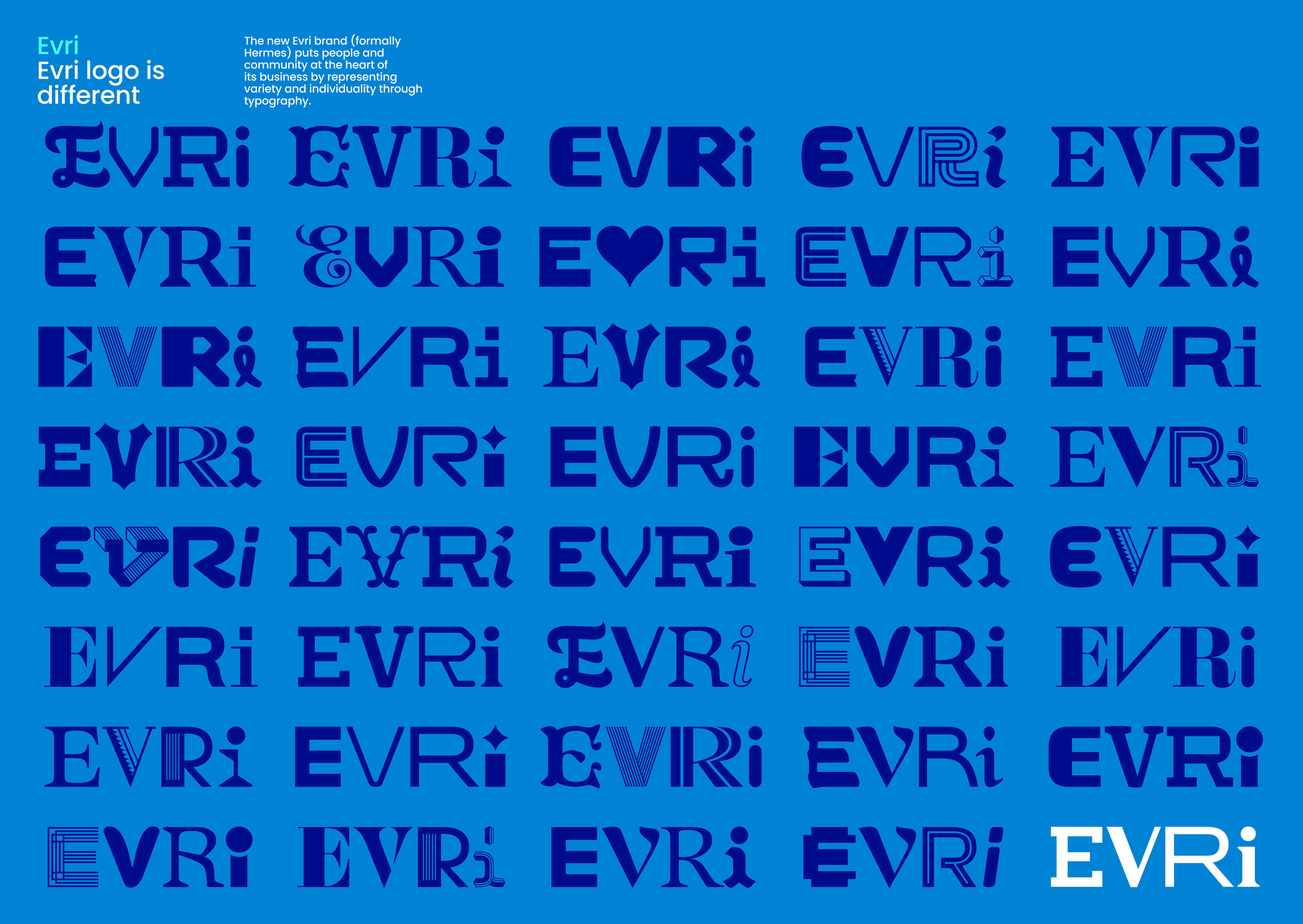4 web design trends for 2015 that will change your job forever
Our day-to-day jobs are soon going to be very different, predicts Paul Boag.

As web professionals we often look at other industries with disbelief at their failure to adapt to digital. The downfall of music retailing, the demise of companies like Kodak and the challenges faced by newspapers.
But are we aware of the changes happening in our own sector? The web is now over 25 years old. Are we beginning to get set in our ways? Are we just as blind to changes as other industries?
I am aware I maybe sounding melodramatic and I don't mean to be. We are not about to see our roles disappear. We may not see many travel agents or encyclopaedia salesmen around these days because of digital. But that doesn't mean we are in immediate danger.
That said, there are certain trends that are worthy of our attention. These are trends that might not make us obsolete, but they will change what we do from day-to-day.
The four trends I'm talking about are:
- The move towards in-house teams
- The automation of code
- The rise of software as a service
- The decline of the website
01. The move towards in-house teams
The way businesses perceive the web has changed a lot in recent years. Once seen as another marketing channel, it is now perceived as business critical for a lot of organisations.
Many companies have decided it is unwise to rely on an outside suppliers for business critical operations. Instead they are building internal teams to take on the role. This is strategically wise, but also provides significant cost savings over the longer term.
Daily design news, reviews, how-tos and more, as picked by the editors.
We are beginning to see this impact our sector as agencies compete for a shrinking number of opportunities at the top end of the market. Some agencies such as Adaptive Path and Mark Boulton Design have sold to their clients. Effectively they have become in-house teams. Others are being forced to downsize.
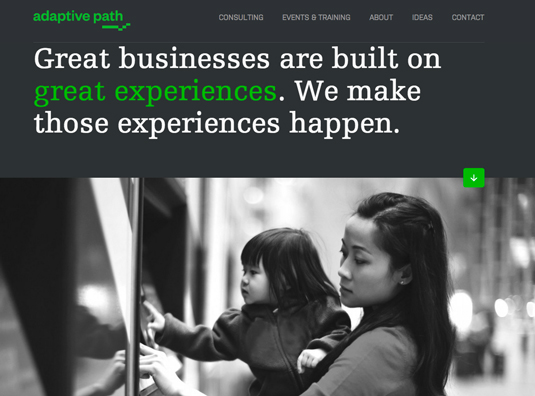
Of course no in-house team is going to have every skill they need to operate. There will still be work for the specialist. But, whether specialist agencies are sustainable is hard to tell. Instead we might see the growth of specialist contractors who work on short term contracts with in-house teams.
This means that those of us working in high-end agencies need to think about our long term position. The chances are we will see a growing number of agencies close their doors over the coming years. Those of us who work for those agencies may well find ourselves joining in-house teams. That or becoming much more specialised in our role.
But it is not just those working at the top end of the market who will experience change.
02. The rise of software as a service
The rise of software as a service is threatening the lower end of all kinds of sectors. For example, services like FreeAgent are replacing traditional book keepers. In fact SaaS is eroding traditional models in everything from recruitment to customer management.
Unfortunately for some, web design is no exception. There was a time when self employed web designers could produce cheap websites from home and make a reasonable income. Today that is becoming hard with services like Squarespace allowing people to build their own website.
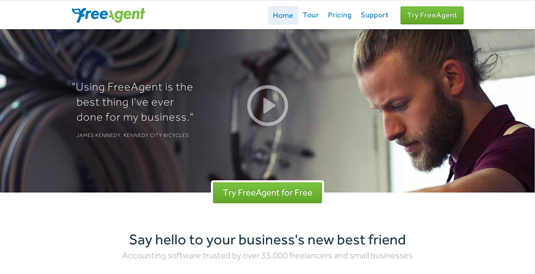
But this doesn't just apply to 'build your own website' services. It would now be insanity to build a custom content management system in the vast majority of cases. Once this was big business for many developers. The same is true for ecommerce platforms. Services like Shopify means the days of building shopping carts for most are over.
What this does is push those low end web designers up market at exactly the same time as the high end agencies are lowering their prices. This squeezes the middle.
Software as a service is commoditising much of what use to be bespoke work. But even bespoke design is becoming easier than ever before.
03. The automation of coding
There was a time when being able to code good quality HTML and CSS was enough. That is no longer the case. Not only is there a surplus of people able to do this, the need to code is waning.
Tools like Macaw and Adobe Reflow are enabling designers to do much of the work of front-end coders. Now I know what you are thinking — these tools create terrible CSS. You are right, but they are a sign of things to come. Over time these tools will become more sophisticated. It wouldn't surprise me if eventually hand coding HTML and CSS becomes a skill few still need.
Although these tools will never produce code as good as a person, it will be good enough. In the end it will come down to return on investment. For many 'quick to market code' that is 'good enough' will be a better investment than hand-coded.
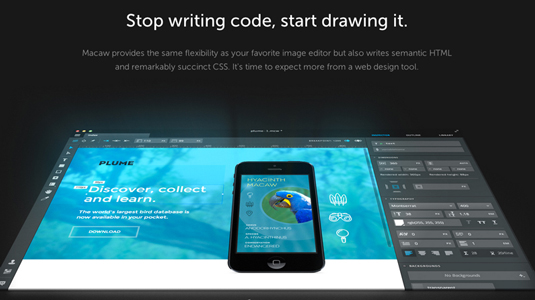
But even if that does not happen, these tools are already having an impact. Creating working prototypes has become much easier. A job that used to keep a front end coder busy for days if not weeks.
It's easy to dismiss the impact of these tools. They don't replace a good coder. But, I remember graphic designers saying the same thing about desktop publishing. DTP didn't replace the graphic designer but it did thin the herd.
If you are a designer, you might be feeling a little smug at this point. After all we will always need people to design websites no matter how we code our sites. But perhaps longer term even that will change.
04. The decline of the website
Have you noticed the gradual decline in the role of the website? Take for example going to see a movie. You know what you want to see, but you don’t know where it is showing.
In the past you would have visited each movie theatre website one at a time to see if they were showing the film you wanted. Each website was different, crafted by a busy team of web designers.
My betting is that is not how you look up movies anymore. The chances are you have a single app on your mobile that aggregates movie listings from many sources. Perhaps you even ask Siri or just Google it.
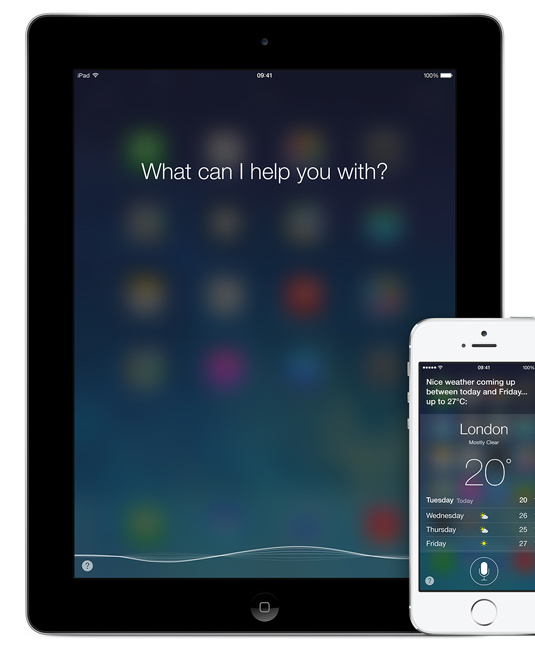
This creates a much better experience as users don't have to deal with different interfaces. Unfortunately it does start to undermine the role of the designer crafting these different sites.
I am sure it won't be long before you ask Siri and she tells you when and where your film is on. The whole thing done by voice command, no user interface at all.
Content is being set free from design. Instead we are sharing content via APIs between applications and sites. Sometimes business owners are choosing to put their content on Facebook, Yelp or Foursquare. They are abandoning the idea of having their own site. This is something that is particularly prevalent in China.
Don't panic!
This might leave you feeling despondent about your future prospects. It shouldn't. As somebody who has worked in the web over 20 years, I can tell you that as long as you are able to adapt then none of this will be an issue. Sure, your role will change but you won’t find yourself homeless.
The danger is that the transition could prove painful if you are not aware that change is coming. Whether I am right in my predictions or not you can be sure of one thing — the web will continue to evolve. As Charles Darwin said: "It is not the strongest of the species that survives, nor the most intelligent that survives. It is the one that is the most adaptable to change."
Words: Paul Boag
Co-Founder of Headscape and host of the Boagworld Podcast, Paul Boag has spent more than 20 years of helping organisations manage digital change.

Thank you for reading 5 articles this month* Join now for unlimited access
Enjoy your first month for just £1 / $1 / €1
*Read 5 free articles per month without a subscription

Join now for unlimited access
Try first month for just £1 / $1 / €1

The Creative Bloq team is made up of a group of art and design enthusiasts, and has changed and evolved since Creative Bloq began back in 2012. The current website team consists of eight full-time members of staff: Editor Georgia Coggan, Deputy Editor Rosie Hilder, Ecommerce Editor Beren Neale, Senior News Editor Daniel Piper, Editor, Digital Art and 3D Ian Dean, Tech Reviews Editor Erlingur Einarsson, Ecommerce Writer Beth Nicholls and Staff Writer Natalie Fear, as well as a roster of freelancers from around the world. The ImagineFX magazine team also pitch in, ensuring that content from leading digital art publication ImagineFX is represented on Creative Bloq.
